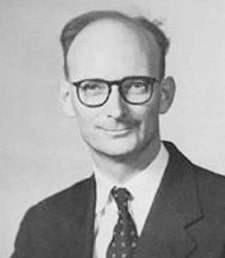John Langshaw Austin (1911 – 1960) was an influential philosopher who taught at Oxford from 1952 to 1960.
His main works are:
- Philosophical Papers (1961);
- Sense and Sensibilia (1962);
and - How to Do Things with Words (1962)
His notes on the locutionary, illocutionary and perlocutionary forces of utterance help sign researchers to discern more clearly some important features of our linguistic practice (the way we use language).
More generally, his writings contribute to what in Anglo-American philosophy is called the linguistic shift.
Although Austin is rightly placed among language philosophers (who maintain that philosophical problems are best resolved “dissolved” in our attention to the ways we speak), he himself (Austin) believes that language activities should be subordinated to something else: “When we ask ourselves what to say, what words to use and in what situations, we are again looking not only for the words (or meanings, whatever they are) but also the realities that the words are used to speak of. We use a sharpened consciousness of words, sharpening our perceptions, though not as ultimate arbiters, of phenomena“(1961, 182).
Thus, when considering philosophical problems, we must be aware that “everyday language is not the last word (“ultimate arbiter”), in principle, it could be supplemented, improved, or replaced everywhere. Remember, it is the first word” (1961, 185).


